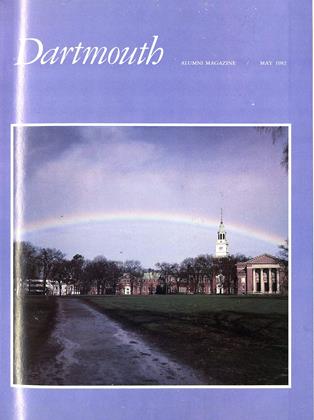In discussing "terrorism," the definition must come first, as Professor Bishop recognizes. An "ordinary criminal" is not a "terrorist" because the actor is not seeking political goals by bloodshed and destruction in a "polity" where peaceful means such as "honest elections and honest courts" are offered. Our police and prosecutors, dealing with the "ordinary criminals" within constitutional bounds, can maintain a reasonable resemblance to a civilized society. Terrorists, however, present a different problem. Expecting no protection for themselves from the Constitution, they accord no mercy or compassion for their victims. Extraordinary governmental suppression becomes necessary, and the powers granted under the Constitution become stretched to their outer limits.
That part of our population most seriously oppressed has not chosen the way of violence to achieve equal treatment. The activities of the Weather Underground and Black Liberation Army have been amateurish and have not called for extreme measures of suppression. If we did face true terrorism on a national scale, however, our history furnishes ample evidence that we could deal with it without suspending or changing the Constitution.
The Korematsu case is proof enough. There, the Supreme Court held that citizens and other persons of Japanese ancestry could be expelled from the West Coast simply because the military authorities feared that it would be hard to distinguish loyal people who looked like Japanese from spies and saboteurs of the same ancestry. Many commentators decried the holding, but the Court said that the emergency begets the authority. Presumably, the justices would have been as ready to uphold expulsion from the East Coast of people who looked like Germans, if another paranoid military commander there had declared it necessary for adequate defense of the country. That is the extreme case, but ruthless terrorists could provoke a similar response within the Constitution.
Perhaps one of the blessings of our heritage is the unlikelihood that people nurtured in the history and culture of America the Beautiful will be attracted to the terrorist way and press us to the wall of counter pressure.
Private Practice Former Cornell law professor and State Department official
 View Full Issue
View Full Issue
More From This Issue
-
 Feature
FeatureWhat keeps them going? A 'Mystic Glue' Perhaps
May 1982 By Dana Cook Grossman -
 Feature
FeatureTerrorism and the Niceties of Justice
May 1982 By Joseph W. Bishop Jr. -
 Feature
FeatureImpacts simply positive
May 1982 -
 Article
ArticleIn the Wide, Wide World
May 1982 By Peter Smith -
 Class Notes
Class Notes1964
May 1982 By Alexander D. Varkas Jr. -
 Class Notes
Class Notes1954
May 1982 By John L. Gillespie
Michael H. Cardozo '32
-
 Letters to the Editor
Letters to the EditorToo Many Republicans?
November 1952 -
 Letters to the Editor
Letters to the EditorLetters to the Editor
JAN./FEB. 1978 -
 Letters to the Editor
Letters to the EditorLetters to the Editor
December 1978 -
 Letters to the Editor
Letters to the EditorLetters
FEBRUARY • 1988 -
 Letters to the Editor
Letters to the EditorTales Long Out of School
May 1995 -
 Class Notes
Class Notes1932's "World's Best" 20th
July 1952 By MICHAEL H. CARDOZO '32
Article
-
 Article
ArticleSENIORS ARE APPOINTED TO STUDY COLLEGE POLICY
March, 1924 -
 Article
ArticleHigh School Men Lead
February 1936 -
 Article
ArticleFace to watch
July/Aug 2002 -
 Article
ArticleLast Month's Results
December 1952 By Cliff Jordan '45 -
 Article
ArticleRugby, Mud, and Mardi Gras
May 1979 By D.M.N. -
 Article
ArticleAbout 25 Years Ago
April 1938 By Warde Wilkins '13.

